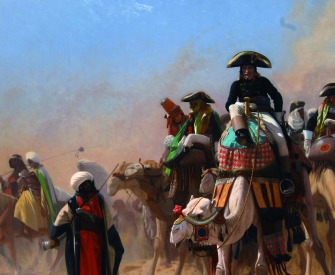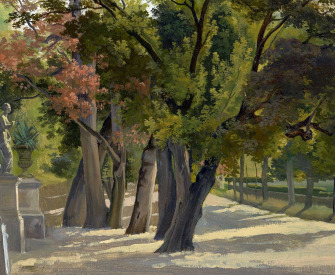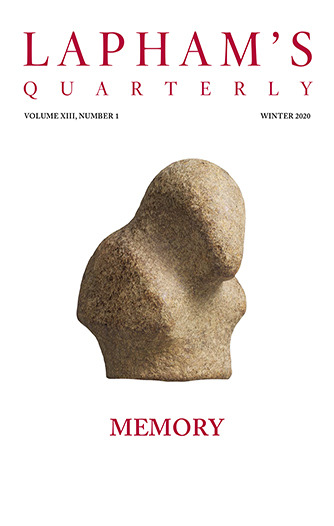The tribes of Europe differ from one another in stature, shape, and courage.
Those who inhabit a country that is mountainous, rugged, elevated, and well-watered, and where the changes of the seasons are very great, are likely to have a great variety of shapes among them and to be naturally of an enterprising and warlike disposition. Such persons are apt to have no little of the savage and ferocious in their nature. But those who dwell in places that are low-lying, abounding in meadows, and ill-ventilated, and who have a larger proportion of hot than of cold winds, and who make use of warm waters—these are not likely to be of large stature nor well proportioned but are of a broad make, fleshy, and have black hair. They are rather of a dark than of a light complexion and are less likely to be phlegmatic than bilious. Courage and laborious enterprise are not naturally in them but may be engendered in them by means of their institutions. And if there are rivers in the country that carry off the stagnant and rainwater from it, these may be wholesome and clear; but if there are no rivers, but the inhabitants drink the waters of fountains, and such as are stagnant and marshy, they must necessarily have prominent bellies and enlarged spleens. But those who inhabit a high country, and one that is level, windy, and well-watered, will be large of stature and like to one another, but their minds will be rather unmanly and gentle. Those who live on thin, ill-watered, and bare soils, and not well attempered in the changes of the seasons, in such a country they are likely to be in their persons rather hard and well braced, rather of a blond than a dark complexion, and in disposition and passions haughty and self-willed. For where the changes of the seasons are most frequent, and where they differ most from one another, there you will find their forms, dispositions, and nature the most varied. These are the strongest of the natural causes of difference, and next the country in which one lives, and the waters. In general, you will find the forms and dispositions of mankind to correspond with the nature of the country. For where the land is fertile, soft, and well-watered, and supplied with waters from very elevated situations, so as to be hot in summer and cold in winter, and where the seasons are fine, there the men are fleshy, have ill-formed joints, and are of a humid temperament. They are not disposed to endure labor and, for the most part, are base in spirit. Indolence and sluggishness are visible in them, and to the arts they are dull and not clever nor acute. When the country is bare, not fenced, and rugged, blasted by the winter and scorched by the sun, there you may see the men hardy, slender, with well-shaped joints, well-braced, and shaggy; sharp industry and vigilance accompany such a constitution. In morals and passions, they are haughty and opinionative, inclining rather to the fierce than to the mild. You will find them acute and ingenious as regards the arts and excelling in military affairs and likewise all the other productions of the earth corresponding to the earth itself. Thus it is with regard to the most opposite natures and shapes; drawing conclusions from them, you may judge of the rest without any risk of error.
From “On Airs, Waters, and Places.” This treatise is part of the Hippocratic Corpus, a body of texts formerly ascribed to the ancient Greek physician Hippocrates, many of which are no longer believed to be his work. While much of the corpus consists of medical theory, this manual for itinerant physicians is a more practical guide to the physiological theory of the humors. “In spite of its sagacity and rejection of the supernatural,” translator W.H.S. Jones wrote, it “shows a tendency to facile and unwarranted generalization.”
Back to Issue


